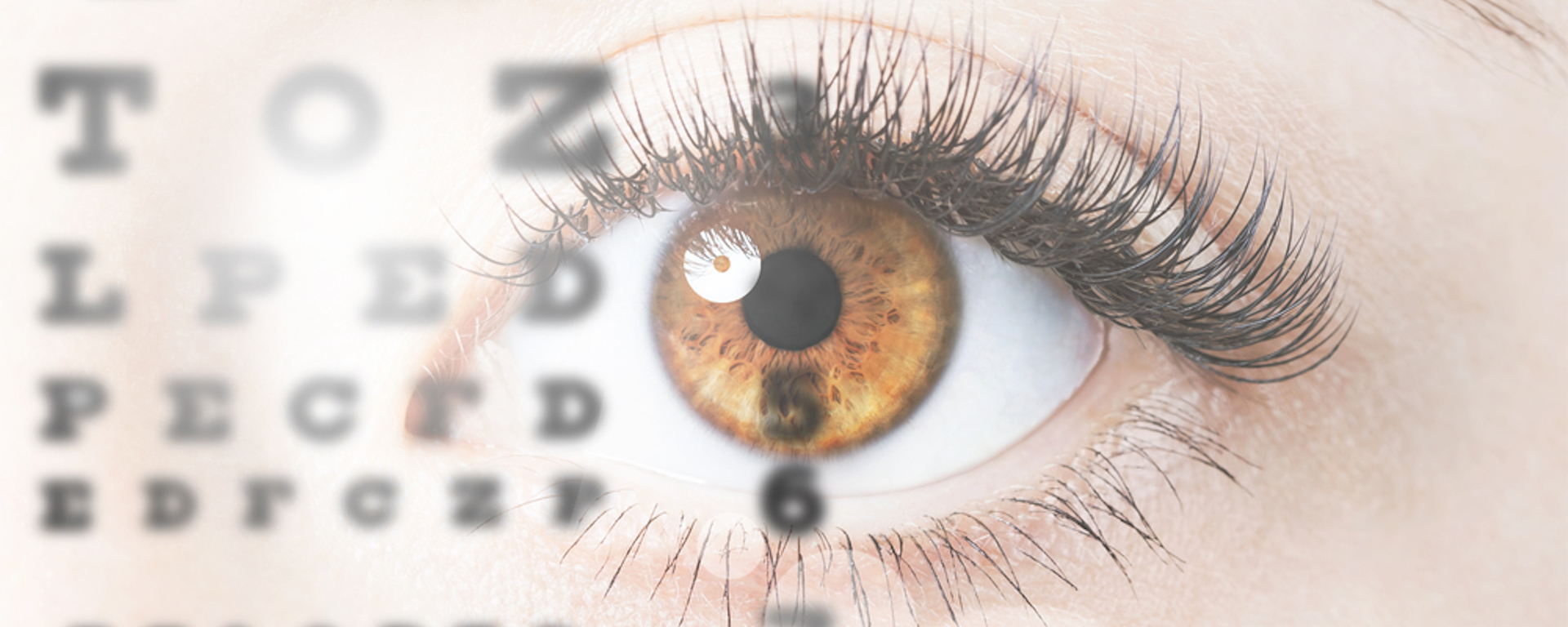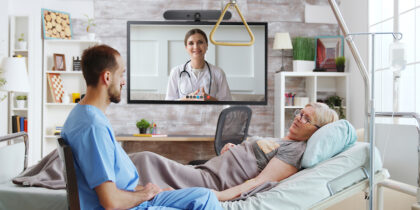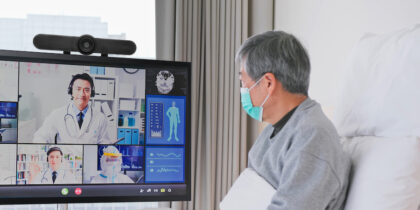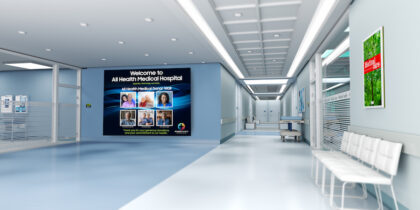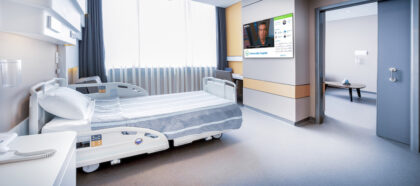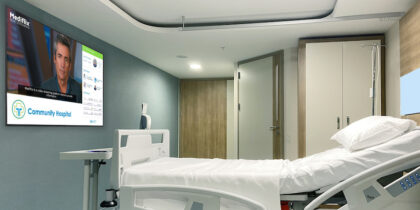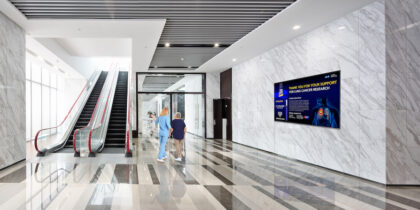Telemedicine is a bigger industry than you might realize. Although much of its growth has been spurred by new laws (including the Telehealth Modernization Act of 2015) and federal incentive programs, we’re entering into a new era driven by patient mobility and a fresh perspective on how healthcare needs are delivered. One of the best examples of this is a recent launch in the world of ophthalmology and mobile eye exams.
Smart Vision Labs has created a smartphone-based autorefractor specifically for vision testing. The SVOne Enterprise is an intuitive vision evaluation system that the New York City-based company is testing in local eyeglasses stores. Smart Vision built the technology off of its earlier SVOne, which is a brick-sized, handheld autorefractor that attaches to a smartphone. The autorefractor then evaluates the function of a patient’s eye by measuring refraction error using wavefront aberrometry. The SVOne was initially designed for use only by trained eye care professionals, but it has since entered the world of remote care through a pairing with Smart Vision’s proprietary telemedicine platform.
The Patient Experience
In any location where SVOne Enterprise is available, a patient will have the opportunity to take a self-guided vision evaluation. The data that’s collected is then sent to an off-site network of doctors who perform their traditional duties such as writing a digital prescription or giving a recommendation for a full eye health exam.
This is a game changer for patients. Partially due to a shortage of eye doctors in the U.S., many optical stores either choose not to or can’t afford to keep an optometrist on staff to help their customers. On the patient side, many can’t afford the time or expense of scheduling an appointment and visiting a specialist. Smart Vision aims to address these issues and more. According to founder Yaopeng Zhou, though their starting point is narrowly focused, the mobile eye exams have many applications outside of vision stores, giving patients even more options. “The technology actually has quite a bit of applications in different channels,” she notes. “Pharmacy, clinics, even corporate wellness. But the soft spot is traditional optical stores. We’re really aiming to build out to 40 or 50 stores around New York City, then expand internationally.”
This technology marks another step in the decentralization of medicine that aligns with a future based on patient convenience and results. It also furthers the shift of smartphones from devices we primarily use for entertainment to ones that are integral to our health and improve our quality of life. We’re still not quite at a point where we can perform full physical exams via smartphones, but this technology — and the shift in patient expectations that is bound to follow as a result — are a strong first step.
Mobile devices offer opportunities to increase the quality of patient care, both in the home and in hospitals. Learn more about how different healthcare solutions can offer an enhanced patient experience here.
